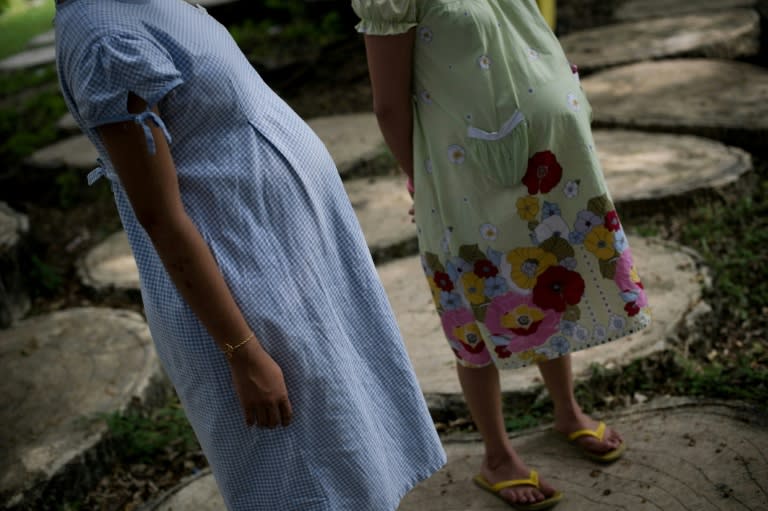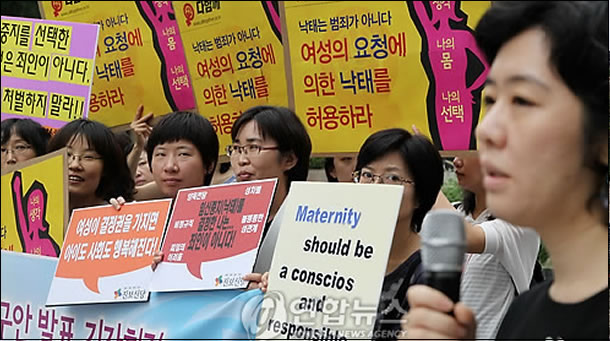
In South Korea women who undergo abortion can be jailed for a year except for instances of rape, incest and when the mother’s health is at risk. Korea is one of the few industrialized nations where the procedure is illegal and doctors who carry out terminations can be given two years in prison.

Many women whose relationships are breaking up fear their husbands or partners could report their past terminations to authorities, according to activists. South Korea comes near the bottom of many OECD gender equality tables.
Ryu Min-hee, one of the counsels on the constitutional court case, said that as long as women cannot make their own choices about pregnancy and parenthood, the country “won’t be able to establish an equal society in its true sense.”

The 1953 law is widely flouted and rarely results in prosecutions, but activists say it leaves women facing being unable to pay for terminations, unsafe procedures and social isolation.

Calls to repeal the law have gained traction in recent years, but support for it is also staunch in a country that remains conservative towards female sexuality and highly influenced by evangelical Christianity.
An opinion poll in 2017 showed a narrow public majority 51.9 percent in favor of abolishing the ban. The Constitutional Court last upheld the law in 2012, saying that abortion would “end up running rampant” if not punished.
But activists who want it changed sense a rare opportunity, with six of the nine current judges appointed by liberal-leaning President Moon Jae-in, and several of its members including the chief justice having publicly shown a willingness to reconsider the rules.
The current case was filed by a woman doctor who was prosecuted for performing almost 70 abortions.

Campaigners say the procedure is in fact commonplace in South Korea, and that the ban has been unfairly applied to target mostly young, unwed women who are most vulnerable to abortion-related stigma in the country.
A survey last year found one in five women who have been pregnant have had an abortion and only one percent of them said they had a legal reason to terminate the pregnancy.
Statistics also show that as recently as 2011, most South Korean women who had abortions were married, but rights groups say the majority of those charged for undergoing the procedure have been unmarried, including teenagers.
Religious belief is widespread in South Korea, and some of its evangelical mega-churches are among those defending the ban.